Fleurs du Mal Magazine


Or see the index
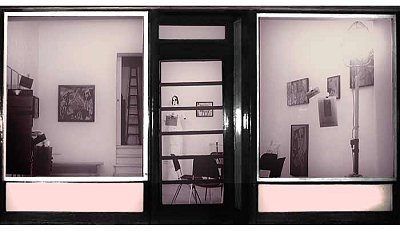
Expositie Nick J. Swarth & Ciska Jansen in galerie Bauchhund, Berlijn
Van 19 januari t/m 16 februari exposeert Nick J. Swarth beeldend werk in Berlijn. Outsider artist Swarth is vooral gekend als dichter. Hij was stadsdichter van Tilburg (2005-2007) en publiceerde meerdere bundels, waarvan de meest recente is getiteld ‘Mijn onsterfelijke lever’. Maar eenkennig is hij nooit geweest. Zo is hij voorganger van het guerrilla rock trio Betonfraktion. Het beeldend aspect van zijn werk krijgt nu de ruimte in Berlijn.

Foto Herman Stehouwer
Hij exposeert er samen met Ciska Jansen. Jansen verblijft sinds 2007 in Berlijn, maar woonde jarenlang in Tilburg, waar zij onder andere de scepter zwaaide over daklozenkrant Spint en het Kinderkookcafé.
Ciska Jansen volgde een opleiding tot kunstdocent aan Tehatex, Tilburg. Haar werk kenmerkt zich door een grote sociale betrokkenheid. In Galerie Bauchhund exposeert zij collages en kabinetten. Ze hebben betrekking op haar Indische komaf.
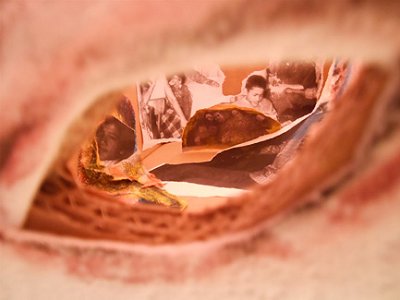
Cisca Jansen
Het beeldend werk van Swarth kenmerkt zich door een rauwe stijl. Christoph Böhm, eigenaar van galerie Bauchhund, vat het samen als ‘Art Brut’. Swarth typeert het zelf als ‘Shabby Art That Falls Apart’. De materialen zijn goedkoop of zelfs van de straat geraapt. Zo krijgt het onooglijke, het morsige een tweede leven in absurde, kwetsbare collages. Ze bevragen begrippen als artistieke waarde en schoonheid. “De kunst kan de wereld niet redden, maar op deze wijze wel een stukje schoner maken,” aldus de maker. Swarth treedt in Berlijn voor het eerst naar buiten met dit werk.
‘Look what I found in your rice’
Ciska Jansen & Nick J. Swarth
Portretten, Collages & Kabinetten
19 januari t/m 16 februari 2014
Vernissage: zondag 19 januari, 16:00
Finissage: zondag 16 februari, 16:00
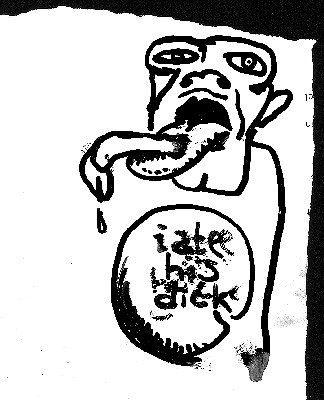
Galerie Bauchhund Salonlabor
Schudomastrasse 38, 12055 Berlijn
0049 (0) 30 56828931
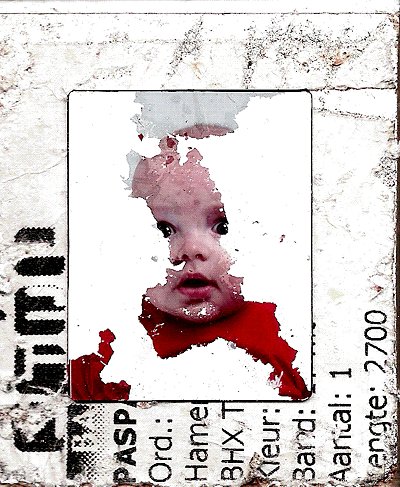
Nick J. Swarth, ‘Zahl: 1’ (2013)
# http://www.bauchhund.de/home.html
# http://enak-enak-ev.blogspot.com
# http://www.swarth.nl
fleursdumal.nl magazine
More in: Art & Literature News, Nick J. Swarth, Swarth, Nick J.
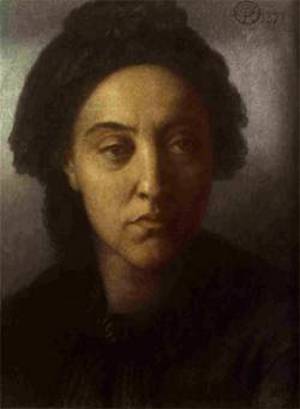
Christina Georgina Rossetti
(1830-1894)
From Sunset to Star Rise
Go from me, summer friends, and tarry not:
I am no summer friend, but wintry cold,
A silly sheep benighted from the fold,
A sluggard with a thorn-choked garden plot.
Take counsel, sever from my lot your lot,
Dwell in your pleasant places, hoard your gold;
Lest you with me should shiver on the wold,
Athirst and hungering on a barren spot.
For I have hedged me with a thorny hedge,
I live alone, I look to die alone:
Yet sometimes, when a wind sighs through the sedge,
Ghosts of my buried years, and friends come back,
My heart goes sighing after swallows flown
On sometime summer’s unreturning track.
Christina Georgina Rossetti poetry
fleursdumal.nl magazine
More in: Archive Q-R, Rossetti, Christina

Jasper Mikkers
VERBONDENHEID
(Kees van den Berg spreekt over zijn geliefde Helga Deen)
Niet om haar voor mezelf te houden
spreek ik nooit over haar.
Nu niemand ervan weet, is het gemis
alleen van mij en minder zwaar.
Ik houd van de leegte die ze achterliet
omdat zíj het is die daar ontbreekt.
Als anderen van haar weten, moet ik ook hun gemis dragen
elke dag, en de verdwijning van de anderen.
Dan mag ik nog alleen een lege, verlaten plek zijn:
hij die zonder Helga is; hij die een moord omarmt.
Dan zal ik altijd iemand zijn die een ultiem verlies leed,
een leven waar iets onvervangbaars aan ontbreekt.
Ik wil niet de eeuwige weduwnaar zijn, ik wil niet dat
mijn vrouw een gat ziet op de plaats van mijn ogen.
Alleen door je geheim te houden kan ik je beminnen
Als ik je niet verberg, zal ik in je stikken.
Een tasje uit de oorlog wees ik je als woning toe.
’s Nachts als de wereld slaapt, bezoek ik je.
Ik houd je in het licht en lees je uit de brieven los,
ik inhaleer je in je haarlok, kus je in je maandverband.
Je leven is met mij verknoopt, je knijpt mijn hand
als je naakt over de Himmelfahrtstrasse loopt.
Jasper Mikkers is Stadsdichter van Tilburg
Noot: Kees van den Berg was de geliefde van Helga Deen. Na zijn dood in 2001 werd tussen zijn bezittingen een damestas gevonden met daarin het kampdagboek van Helga Deen, brieven, een haarlok en een maandverband.
De weg die in kamp Sobibor voerde naar de gaskamers, kreeg de cynische benaming Himmelfahrtstrasse of Road to Heaven. De gevangenen moesten zich van tevoren uitkleden. Bij de vrouwen werden de haren afgeschoren.
(Dit gedicht is uitgesproken op 2 september 2013 ter gelegenheid van de onthulling van het beeld in de Helga Deen-tuin te Tilburg)
Jasper Mikkers Poetry
fleursdumal.nl magazine
More in: Archive M-N, City Poets / Stadsdichters, Mikkers, Jasper
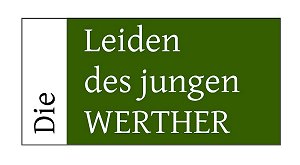
The Sorrows of Young Werther (03)
by J.W. von Goethe
12 May 1771
I know not whether some deceitful spirits haunt this spot, or whether it be the warm, celestial fancy in my own heart which makes everything around me seem like paradise. In front of the house is a fountain,–a fountain to which I am bound by a charm like Melusina and her sisters. Descending a gentle slope, you come to an arch, where, some twenty steps lower down, water of the clearest crystal gushes from the marble rock. The narrow wall which encloses it above, the tall trees which encircle the spot, and the coolness of the place itself,–everything imparts a pleasant but sublime impression. Not a day passes on which I do not spend an hour there. The young maidens come from the town to fetch water,–innocent and necessary employment, and formerly the occupation of the daughters of kings. As I take my rest there, the idea of the old patriarchal life is awakened around me. I see them, our old ancestors, how they formed their friendships and contracted alliances at the fountain-side; and I feel how fountains and streams were guarded by beneficent spirits. He who is a stranger to these sensations has never really enjoyed cool repose at the side of a fountain after the fatigue of a weary summer day.
The Sorrows of Young Werther (Die Leiden des jungen Werther) by J.W. von Goethe. Translated by R.D. Boylan.
To be continued
fleursdumal.nl magazine
More in: -Die Leiden des jungen Werther, Archive G-H, Goethe, Johann Wolfgang von
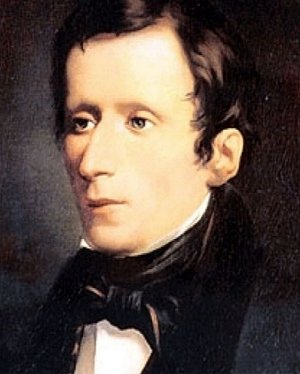
Giacomo Leopardi
(1798 – 1837)
Infinite
These solitary hills have always been dear to me.
Seated here, this sweet hedge, which blocks the distant horizon opening inner silences and interminable distances.
I plunge in thought to where my heart, frightened, pulls back.
Like the wind which I hear tossing the trembling plants which surround me, a voice from the inner depths of spirit shakes the certitudes of thought.
Eternity breaks through time, past and present intermingle in her image.
In the inner shadows I lose myself,
drowning in the sea-depths of timeless love.
Giacomo Leopardi poetry
fleursdumal.nl magazine
More in: Archive K-L, Leopardi, Giacomo
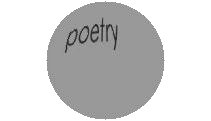
Acht vertalingen van gedichten van T.T. Cloete (1924)
door Carina van der Walt & Geno Spoormans
5. T.T. CLOETE Seepbelsondagoggend Wat is plotseling in die gevoelige weer? Ons sit daar in die koelte gedemp en praat of swygend in die tuin, eerder meer swygend. Uit die hemel en uit die straat van die buurt om ons huis assimileer ons vreugde. Die lyster kom sit en pik wurms uit die gras, die honde speel onder die bome. Die insekte skrik van rooi na wit na blou na geel blomme. Ons velvoel die son se prik. Ons fotosinteer met die welige koel blare en sit en kyk aangegryp hoe die buurvrou oorkant met die jong glansende hare haar lieflike sagte kind innig vashou in haar liefderyke kort vrugbare jare. Ineens is daar vir ’n kosbare hartseer oral plek in gras en voëls, daar is lelies en blare daarvoor en ons is daar, die weer en die lughemel, dit waai in ’n dun bries. Ons ontdek ons sê geen woorde meer vir mekaar nie. Daar kom ’n moment delikaat en só heel dat ’n enkele uur die waarde van ’n ganse bestaan het, met ’n oordaad so gelade, so volmaak, dat die mees bedaarde lispel dit rinkelend gaan stukkend praat. T.T. CLOETE Zondagochtendzeepbel Wat is er plotseling aan de hand met het weer? We zitten zachtjes in de tuin te praten of te zwijgen in de schaduw, al hoe meer te zwijgen. We assimileren hemel en straten van de buurt rondom ons huis en baten elke keer onze vreugde uit. De lijster komt wormen pikken uit het gras, de honden spelen onder de bomen. De insecten schrikken van rode naar witte naar blauwe naar gele bloemen. We voelen de zon op onze vellen prikken. Fotosynthese tussen deze weelderige koele blaren en de aangrijpende verschijning aan de overkant van onze jonge buurvrouw met de glanzende haren haar zachte kind tussen borst en hand in haar liefderijke kort vruchtbare jaren. Ineens is er voor kostbaar verdriet plek te over tussen gras en vogels, tussen lelies en blaren en wij zijn erbij, om wat dit biedt het weer, de hemellucht en het waaien van een dunne bries. We ontdekken dit maar spreken niet tegen elkaar. Soms is er een moment zo delicaat en zo heel dat slechts een enkel uur de waarde van een vol leven heeft, met overdaad zo beladen, zo volmaakt, dat zelfs het meest bedaarde gelispel haar rinkelend in stukken praat.
T.T. Cloete 8 gedichten: Vertalingen uit het Zuid-Afrikaans door Carina van der Walt & Geno Spoormans 2010
(wordt vervolgd)
fleursdumal.nl magazine
More in: Archive C-D, T .T. Cloete, Walt & Spoormans
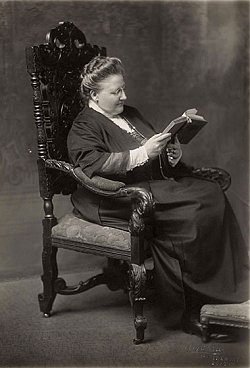
Amy Lowell
(1874–1925)
To a Friend
I ask but one thing of you, only one,
That always you will be my dream of you;
That never shall I wake to find untrue
All this I have believed and rested on,
Forever vanished, like a vision gone
Out into the night. Alas, how few
There are who strike in us a chord we knew
Existed, but so seldom heard its tone
We tremble at the half-forgotten sound.
The world is full of rude awakenings
And heaven-born castles shattered to the ground,
Yet still our human longing vainly clings
To a belief in beauty through all wrongs.
O stay your hand, and leave my heart its songs!
Amy Lowell poetry
fleursdumal.nl magazine
More in: Archive K-L, Archive K-L, CLASSIC POETRY, Lowell, Amy
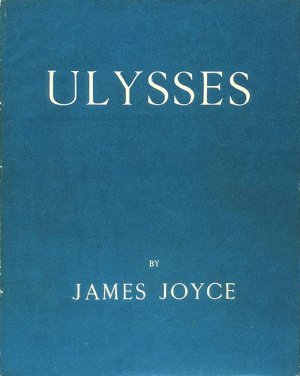
James Joyce
(1882-1941)
DEAR HEART, WHY WILL YOU USE ME SO?
Dear heart, why will you use me so?
Dear eyes that gently me upbraid,
Still are you beautiful — but O,
How is your beauty raimented!
Through the clear mirror of your eyes,
Through the soft cry of kiss to kiss,
Desolate winds assail with cries
The shadowy garden where love is.
And soon shall love dissolved be
When over us the wild winds blow–
But you, dear love, too dear to me,
Alas! why will you use me so?
“Dear heart, why will you use me so?” is reprinted from Chamber Music. James Joyce. London: Elkin Mathews, 1907
James Joyce poetry
fleursdumal.nl magazine
More in: Archive I-J, Joyce, James
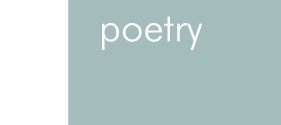
Acht vertalingen van gedichten van T.T. Cloete (1924)
door Carina van der Walt & Geno Spoormans
4.
T.T. Cloete
Silhoeët van Beatrice Dante Par. 1: 112-114 Frontaal gaan vanaf die voorkop die ronding oor in die verfynde wip van die neuspunt, buig dan trug en weer op sag in die welwende bolip. Soos ’n klein watergolf puil die onderlip wat diep duik trug na die ken met die klein kuil en oorgaan in ’n volronde kaaklyn. ’n Kruik is die hals. Daarvandaan langsaam gaan die bors fyn uittas na die tuit en golf na die buikstootjie terug geskaam. Die lyn loop in die lang bobeen uit in ’n effe boog wat stadig gestrek plooi tot die sagte knieronding, terug buig en oorgaan in die effense skeenboog, afglooi af aarde toe tot in die ronde voetbrug. Dít is soos die frontlyn golwend afstrek. Agter van bo na onder loop die ronde skedel af na die dun nek en is daar ’n soepel wonder van konvekse skouers, die rug se konkawe krul af deur die vlesige boude, die dye en kuite se swel. … Tussen die baie dwalinge só vervul bewaar sy die getroetelde model van die kurwe, die diep ingebore istinto wat neig in die ronding van die appel of die haai en die leeu of die koedoe se grasie en in haar entelegiese sublieme lynwil.
T.T. Cloete
Silhouet van Beatrice Dante Par. 1: 112-114 Frontaal gaat vanaf het voorhoofd de ronding over in een verfijnde wip van de neuspunt, buigt dan terug en veroorlooft zich de zachte welving naar de bovenlip. Zoals een kleine watergolf pruilt de onderlip en neemt een diepe duik terug naar de kin met het kuiltje dat schuilt in de volronde kaaklijn. Een kruik is de hals. Langzaam reikt van daar de borst delicaat uit voorbij de tuit en golft na het buikje terug in een beschaamd gebaar. De lijn loopt van het bovenbeen uit in een lichte boog die zich strekt en plooit tot een zachte knieronding, terug buigt naar de ijle scheenboog, afglooit naar de aarde in de ronde voetbrug. Zo is het front golvend uitgelijnd. Van achteren en van boven naar beneden loopt de ronde schedel af en verdwijnt in de nek, een wonder gesneden uit convexe schouders en een ruggelingse draaiing dan af langs vlezige billen, dijen en kuiten die zwellen … Tussen al deze dwalingen en lustvolle verfraaiing bewaart ze de geliefkoosde modellen van curven, het diepgewortelde is tinto dat neigt in de rondingen van de appel of de gratie van de haai, de leeuw of de koedoe en in haar entelechisch verheven lijnspel.
T.T. Cloete 8 gedichten: Vertalingen uit het Zuid-Afrikaans door Carina van der Walt & Geno Spoormans 2010
(wordt vervolgd)
fleursdumal.nl magazine
More in: Archive C-D, T .T. Cloete, Walt & Spoormans

The Sorrows of Young Werther (02)
by J.W. von Goethe
10 May 1771
A wonderful serenity has taken possession of my entire soul, like these sweet mornings of spring which I enjoy with my whole heart. I am alone, and feel the charm of existence in this spot, which was created for the bliss of souls like mine. I am so happy, my dear friend, so absorbed in the exquisite sense of mere tranquil existence, that I neglect my talents. I should be incapable of drawing a single stroke at the present moment; and yet I feel that I never was a greater artist than now. When, while the lovely valley teems with vapour around me, and the meridian sun strikes the upper surface of the impenetrable foliage of my trees, and but a few stray gleams steal into the inner sanctuary, I throw myself down among the tall grass by the trickling stream; and, as I lie close to the earth, a thousand unknown plants are noticed by me: when I hear the buzz of the little world among the stalks, and grow familiar with the countless indescribable forms of the insects and flies, then I feel the presence of the Almighty, who formed us in his own image, and the breath of that universal love which bears and sustains us, as it floats around us in an eternity of bliss; and then, my friend, when darkness overspreads my eyes, and heaven and earth seem to dwell in my soul and absorb its power, like the form of a beloved mistress, then I often think with longing, Oh, would I could describe these conceptions, could impress upon paper all that is living so full and warm within me, that it might be the mirror of my soul, as my soul is the mirror of the infinite God! O my friend–but it is too much for my strength–I sink under the weight of the splendour of these visions!
The Sorrows of Young Werther (Die Leiden des jungen Werther) by J.W. von Goethe. Translated by R.D. Boylan.
To be continued
fleursdumal.nl magazine
More in: -Die Leiden des jungen Werther, Archive G-H, Goethe, Johann Wolfgang von

Emma Lazarus
(1849-1887)
Dreams
A dream of lilies: all the blooming earth,
A garden full of fairies and of flowers;
Its only music the glad cry of mirth,
While the warm sun weaves golden-tissued hours;
Hope a bright angel, beautiful and true
As Truth herself, and life a lovely toy,
Which ne’er will weary us, ne’er break, a new
Eternal source of pleasure and of joy.
A dream of roses: vision of Loves tree,
Of beauty and of madness, and as bright
As naught on earth save only dreams can be,
Made fair and odorous with flower and light;
A dream that Love is strong to outlast Time,
That hearts are stronger than forgetfulness,
The slippery sand than changeful waves that climb,
The wind-blown foam than mighty waters’ stress.
A dream of laurels: after much is gone,
Much buried, much lamented, much forgot,
With what remains to do and what is done,
With what yet is, and what, alas! is not,
Man dreams a dream of laurel and of bays,
A dream of crowns and guerdons and rewards,
Wherein sounds sweet the hollow voice of praise,
And bright appears the wreath that it awards.
A dream of poppies, sad and true as Truth,-
That all these dreams were dreams of vanity;
And full of bitter penitence and ruth,
In his last dream, man deems ’twere good to die;
And weeping o’er the visions vain of yore,
In the sad vigils he doth nightly keep,
He dreams it may be good to dream no more,
And life has nothing like Death’s dreamless sleep.
Emma Lazarus poetry
fleursdumal.nl magazine
More in: Archive K-L, Lazarus, Emma

Jonathan Swift
(1667-1745)
PHYLLIS
ESPONDING Phyllis was endued
With ev’ry talent of a prude:
She trembled when a man drew near;
Salute her, and she turned her ear:
I o’er against her you were placed,
She durst not look above your waist:
She’d rather take you to her bed,
Than let you see her dress her head;
In church you hear her, thro’ the crowd,
Repeat the absolution loud:
In church, secure behind her fan,
She durst behold that monster man:
There practised how to place her head,
And bite her lips to make them red;
Or, on the mat devoutly kneeling,
Would lift her eyes up to the ceiling.
For neighboring beaux to see it bare.
At length a lucky lover came,
And found admittance to the dame.
Suppose all parties now agreed,
The writings drawn, the lawyer feed,
The vicar and the ring bespoke:
Guess, how could such a match be broke?
See then what mortals place their bliss in!
Next morn betimes the bride was missing:
The mother screamed, the father chid;
Where can this idle wench be hid?
No news of Phyl! the bridegroom came,
And thought his bride had skulked for shame;
Because her father used to say,
The girl had such a bashful way!
Now John the butler must be sent
To learn the road that Phyllis went:
The groom was wished to saddle Crop;
For John must neither light nor stop,
But find her, wheresoe’er she fled,
And bring her back alive or dead.
See here again the devil to do!
For truly John was missing too:
The horse and pillion both were gone!
Phyllis, it seems, was fled with John.
Old Madam, who went up to find
What papers Phyl had left behind,
A letter on the toilet sees,
“To my much honoured father–these–“
(‘Tis always done, romances tell us,
When daughters run away with fellows,)
Filled with the choicest common-places,
By others used in the like cases.
“That long ago a fortune-teller
Exactly said what now befell her;
And in a glass had made her see
A serving-man of low degree.
It was her fate, must be forgiven;
For marriages were made in Heaven:
His pardon begged: but, to be plain,
She’d do’t if ’twere to do again:
Thank’d God, ’twas neither shame nor sin;
For John was come of honest kin.
Love never thinks of rich and poor;
She’d beg with John from door to door.
Forgive her, if it be a crime;
She’ll never do’t another time.
She ne’er before in all her life
Once disobey’d him, maid nor wife.”
One argument she summ’d up all in,
“The thing was done and past recalling;
And therefore hoped she should recover
His favour when his passion’s over.
She valued not what others thought her,
And was–his most obedient daughter.”
Fair maidens all, attend the Muse,
Who now the wand’ring pair pursues:
Away they rode in homely sort,
Their journey long, their money short;
The loving couple well bemired;
The horse and both the riders tired:
Their vituals bad, their lodgings worse;
Phyl cried! and John began to curse:
Phyl wished that she had strained a limb,
When first she ventured out with him;
John wish’d that he had broke a leg,
When first for her he quitted Peg.
But what adventures more befell ’em,
The Must hath no time to tell ’em;
How Johnny wheedled, threatened, fawned,
Till Phyllis all her trinkets pawn’d:
How oft she broke her marriage vows,
In kindness to maintain her spouse,
Till swains unwholesome spoiled the trade;
For now the surgeon must be paid,
To whom those perquisites are gone,
In Christian justice due to John.
When food and raiment now grew scarce,
Fate put a period to the farce,
And with exact poetic justice;
For John was landlord, Phyllis hostess;
They keep, at Stains, the Old Blue Boar,
Are cat and dog, and rogue and whore.
“Phyllis” is reprinted from Miscellanies in Prose and Verse. Jonathan Swift. London: Benjamin Motte, 1727.
fleursdumal.nl magazine
More in: Archive S-T, Swift, Jonathan
Thank you for reading Fleurs du Mal - magazine for art & literature